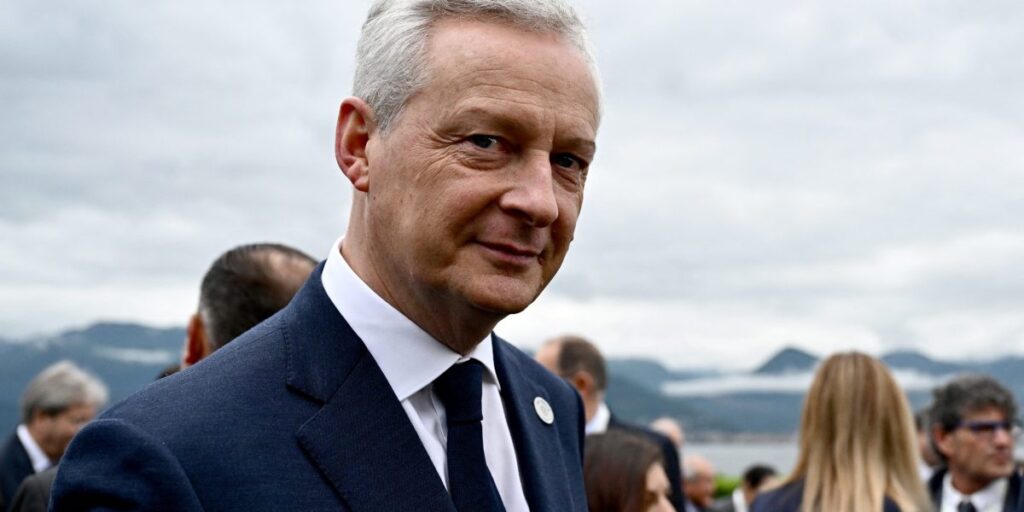French Finance Minister Bruno Le Maire, facing a joint barrage of criticism from the G7, said the entire global economy was at risk from a glut of cheap Chinese goods.
“There is a problem with the economic model in which China produces more and more cheap industrial equipment. This could be a threat not only to the EU, not only to the United States, but also to the global economy,” Le Maire said in an interview on Bloomberg Television. “This problem needs to be addressed.”
Major developed countries are banding together to take a tougher, more united stance against Chinese excess capacity, which they say threatens their own manufacturing industries.
G7 finance ministers meeting in Stresa, Italy, mentioned the country by name and agreed to “address harmful practices” and “consider measures to ensure a level playing field,” language that marked an escalation from the terse, neutral language on trade typically used in their statements.
Their statements came after Washington announced on Friday that President Joe Biden would reimpose tariffs on hundreds of Chinese imports, while the EU is nearing the conclusion of an investigation into electric vehicle subsidies that is likely to lead to defensive measures against Chinese auto exports.
The EU's potential taxes would be significantly lower than those in the United States and are expected to be based on a different approach within the World Trade Organization's rules and procedures.
Le Maire told the G7 that member states needed to step up information exchange and establish a common assessment of Chinese industrial practices, but insisted the EU had all the tools necessary to re-establish a level playing field.
“There should be no misunderstanding about the resolve of the EU countries and the resolve of France,” Le Maire said.
AI Cooperation
The French minister said he wanted to preserve the benefits of years of government policies and investments to build the country's industrial and technological sectors.
A key priority is artificial intelligence, where France intends to maintain its European leadership. The sector is attracting foreign capital, with Microsoft Corp. announcing this month that it will invest €4 billion in French cloud and AI infrastructure. Paris-based Mistral AI also announced a partnership with Microsoft in February.
Asked whether national vetting rules could be used to prevent foreign investors from buying French tech companies, Le Maire said the challenge now was not to prevent cooperation but to strengthen it.
“We will see what the options for cooperation between Mistral and Microsoft are,” Lemaire said. “For the time being, Microsoft is investing in France, they have data centers in France, and we welcome Microsoft's investment in France.”


